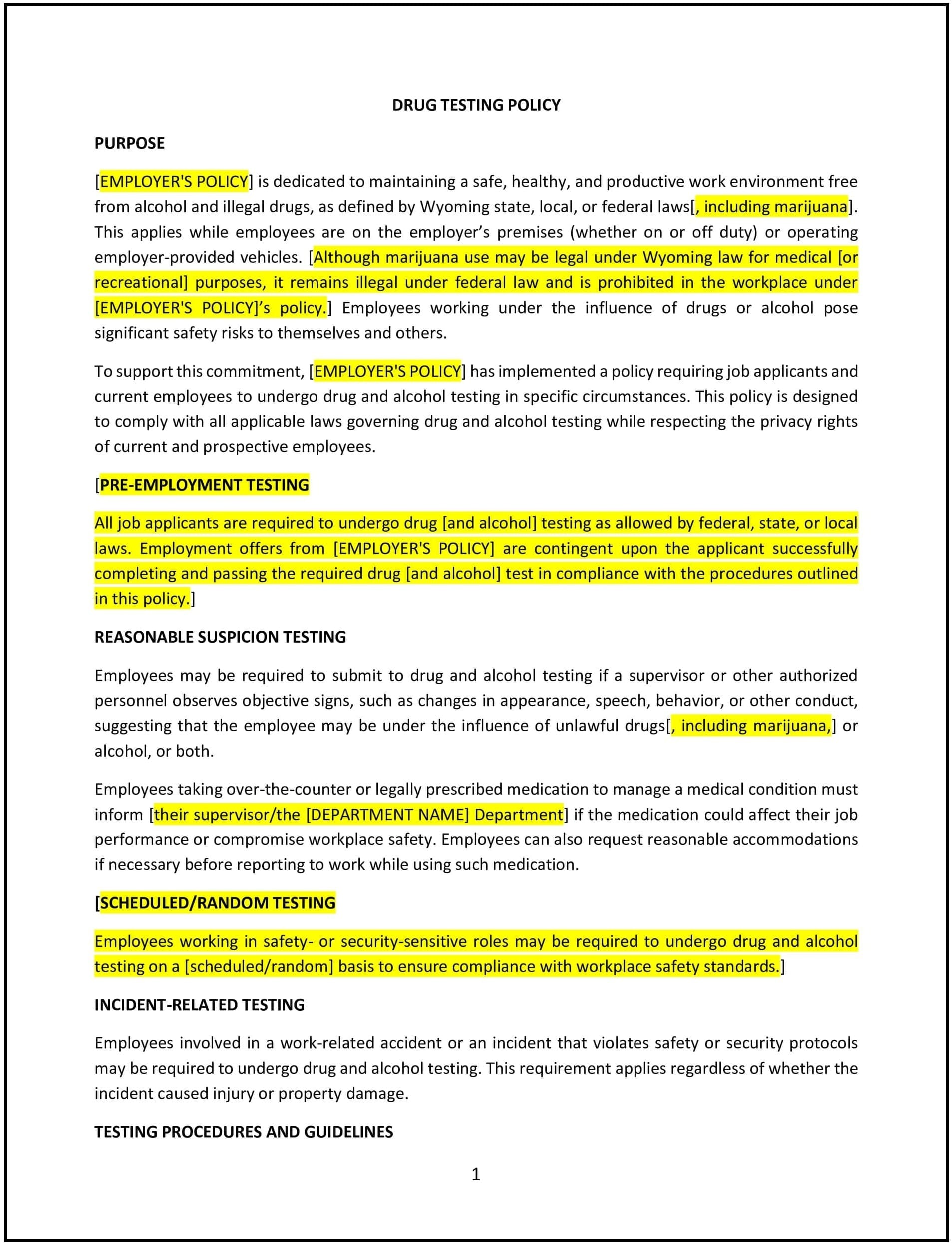Got contracts to review? While you're here for policies, let Cobrief make contract review effortless—start your free review now.

Customize this template for free
Drug testing policy (Wyoming)
In Wyoming, a drug testing policy helps businesses promote workplace safety, maintain productivity, and comply with state and federal regulations. This policy is particularly important for industries like energy, transportation, and healthcare, where safety and compliance are critical.
This policy outlines the types of drug testing conducted, the procedures followed, and the rights and responsibilities of employees and employers, ensuring a consistent and transparent approach to drug testing.
How to use this drug testing policy (Wyoming)
- Define the purpose of drug testing: Clearly state the goals of the policy, such as promoting safety, deterring substance misuse, and complying with legal requirements.
- Specify testing scenarios: Outline when drug testing may occur, such as pre-employment, random testing, post-accident, reasonable suspicion, or return-to-duty testing.
- Provide clear procedures: Detail how tests will be conducted, including the collection process, laboratory testing, and confidentiality measures. Ensure procedures align with Wyoming state laws and federal regulations.
- Outline employee rights: Inform employees of their rights, such as being notified of test results, disputing findings, and accessing support resources if needed.
- Address consequences of violations: Specify the disciplinary actions for positive test results or refusal to comply, such as suspension, termination, or mandatory rehabilitation.
Benefits of using a drug testing policy (Wyoming)
A well-crafted drug testing policy provides several benefits for Wyoming businesses:
- Promotes workplace safety: Reduces the risk of accidents and injuries by identifying substance misuse.
- Improves compliance: Supports adherence to Wyoming and federal regulations, including industry-specific requirements.
- Enhances productivity: Minimizes disruptions caused by substance misuse, ensuring a more focused and reliable workforce.
- Protects reputation: Demonstrates a commitment to maintaining a safe and professional workplace.
- Addresses local needs: Adapts to Wyoming’s industries and unique workforce dynamics, such as rural locations or high-risk roles.
Tips for using a drug testing policy (Wyoming)
- Tailor to your industry: Customize the policy to reflect the specific safety and compliance needs of your business, especially in high-risk industries.
- Support legal compliance: Regularly review Wyoming’s drug testing laws and federal regulations to align your policy with current requirements.
- Educate employees: Provide training on the importance of drug testing and the procedures involved to ensure understanding and cooperation.
- Protect confidentiality: Implement strict measures to safeguard employee privacy and maintain trust.
- Review and update regularly: Update the policy to reflect changes in laws, industry standards, or workplace needs.